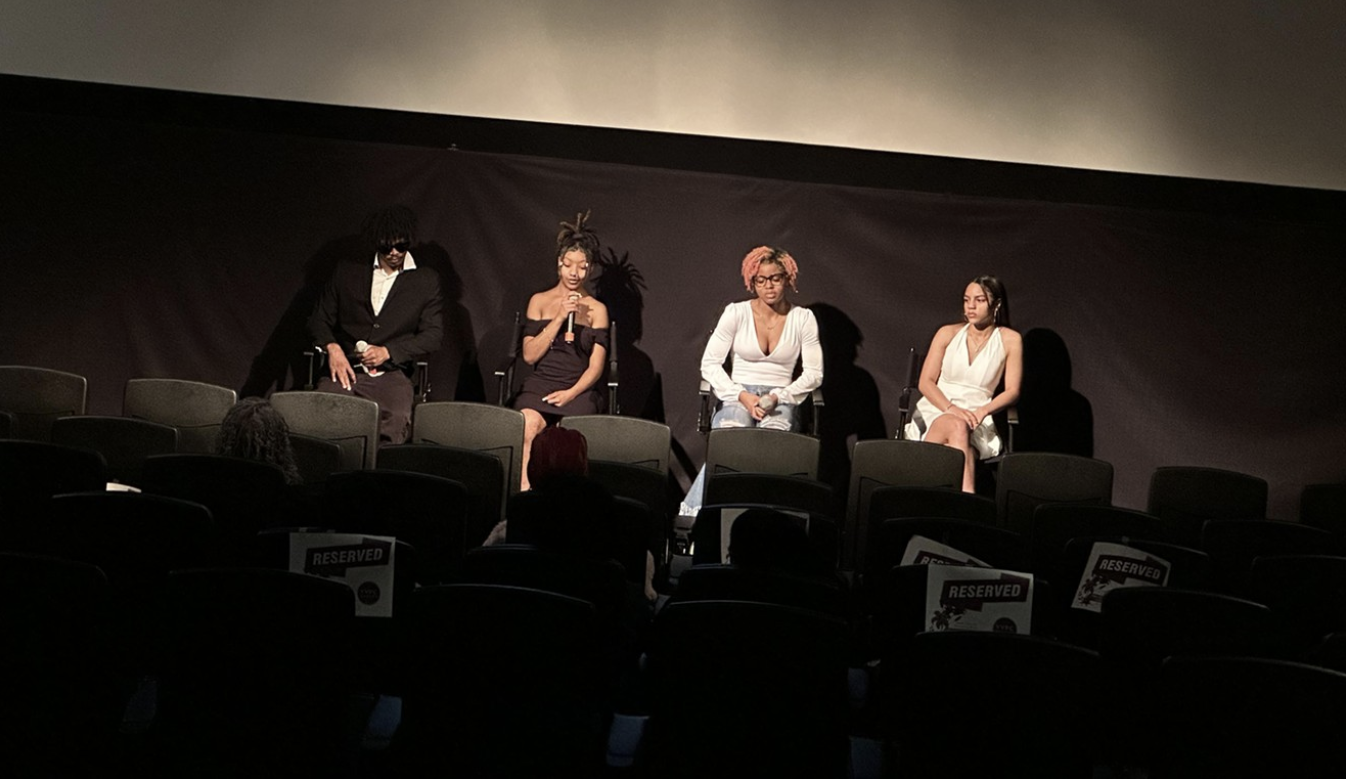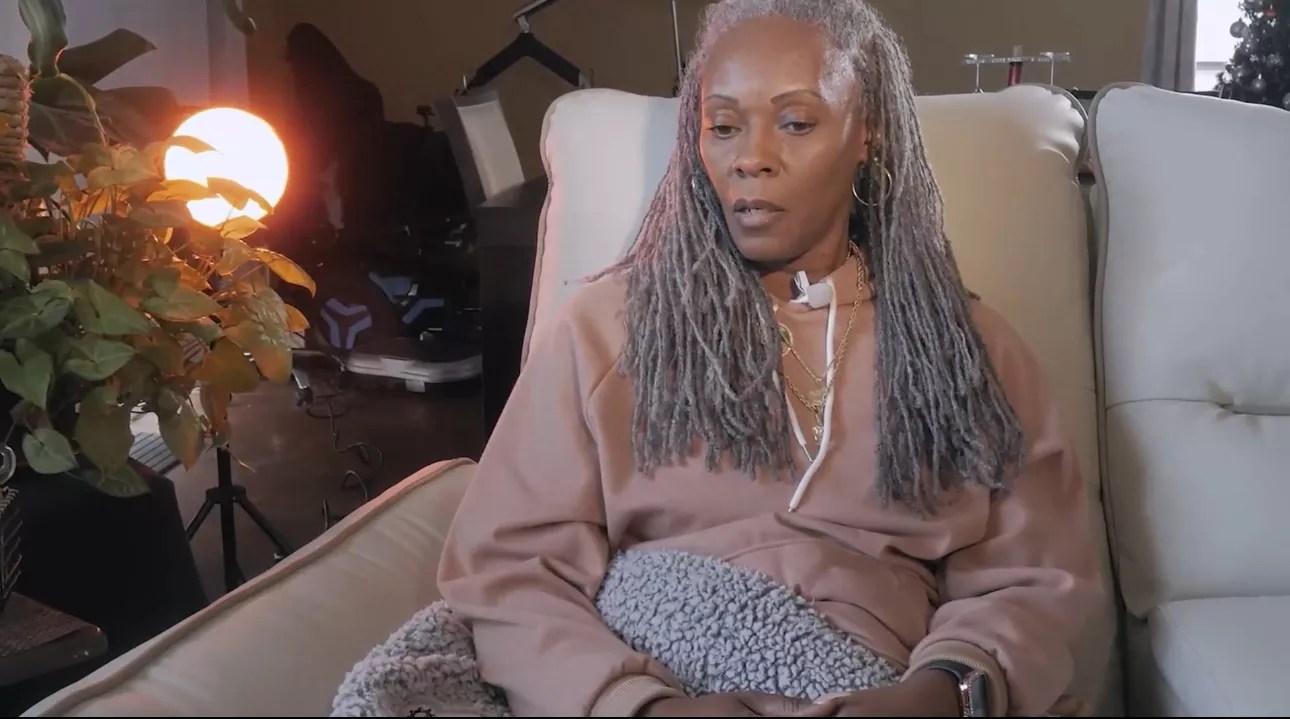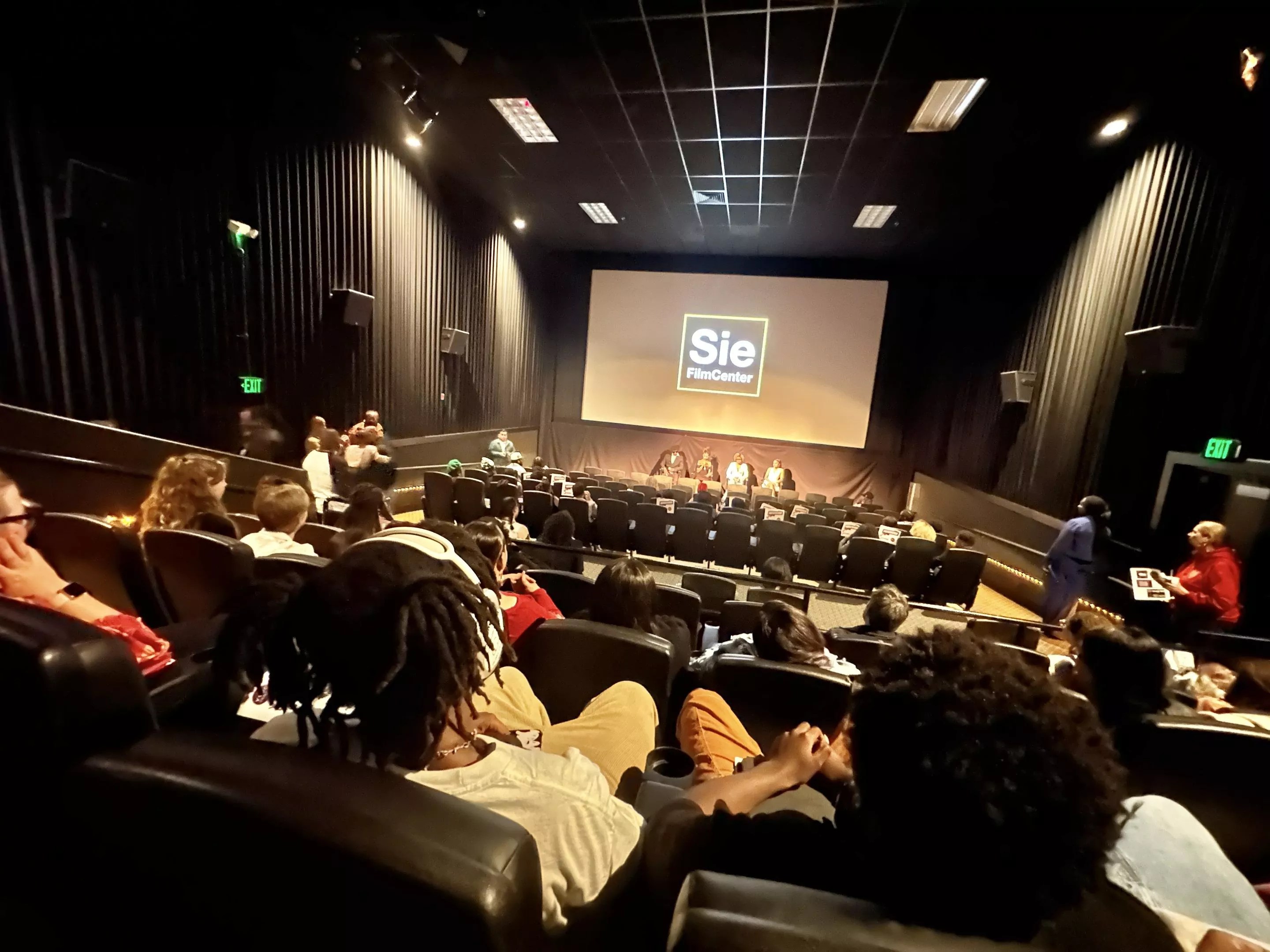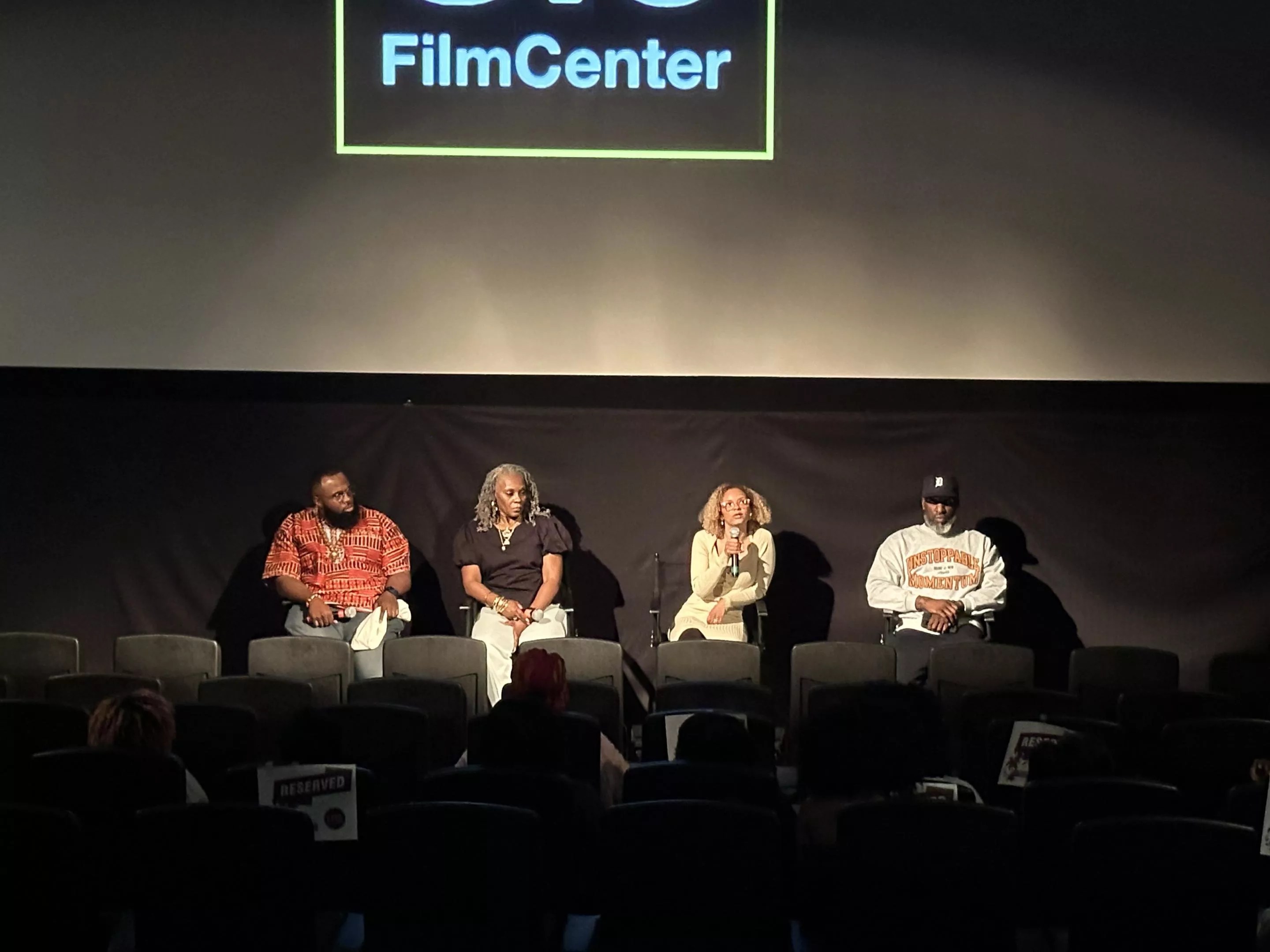
Westword

Audio By Carbonatix
Over the past two decades, suicide rates among Black youths have risen by 78 percent.
It’s a stat that many people don’t know – or don’t want to know – but it’s time to start paying attention, according to Denver youth leaders and the kids themselves.
“These youth really have something to say,” explained director and producer Bo Olagbegi, aka Uncle Tuxx, during a panel discussion of his new documentary, Voices Unheard: Breaking the Silence on Mental Health in the Black Community, which premiered at the Sie FilmCenter on April 25, in honor of National Youth Violence Prevention Week.
With the film, Tuxx wanted to “boldly confront” the silence regarding mental health in the Black community and spotlight the taboo of suicide. To do so, he shined a light on the life of Tyree Williams, a local high school student who died by suicide at the age of seventeen after struggling with issues that many adults don’t go through in their entire lifetimes.
“Tyree’s road was very different,” his mother, Laticia Cunningham, says in the documentary. “At ten, I’m at work – working two jobs – and he was hanging out with his brother, who’s seven years older than him. … He was still happy to the world, but inside he had his own struggles and he just had too much free time…and that’s where I started noticing more of the struggle.”
On top of stresses he had been going through during his adolescence, Tyree had to deal with his only sister being severely injured at a young age. “My daughter had a traumatic car accident,” Cunningham says in the film. “Conversations that we had in his seventeen-year-old mind were that she didn’t see a way that she could make it. Struggling with that was way too much for him. He lost trust in school, he lost trust in the adults that are supposed to be in the position to help youth.”
According to Cunningham, Tyree had a good relationship with his teachers and fellow students. But inside he was struggling with himself and trying to understand how to be happy for everybody else while navigating his true feelings.
“He was always smiling,” Cunningham recalls. “Reading what was really going on” was very difficult, she adds, noting how most people weren’t aware that Tyree was at war with his emotions.

Laticia Cunningham, mother of Tyree Williams, urges people in Voices Unheard to encourage their children to speak up and get help.
YVPC-Denver
Tuxx’s documentary points out the importance of looking at broader societal and cultural systemic factors to see how Tyree’s story and experience mirror the struggles of countless other Black youths. So the film shows local teens themselves, discussing what’s troubling many of them and ways they’ve gone unheard.
“Life is just hard for our kids,” says Derek Hawkins, dean of students at Dr. Martin Luther King, Jr. Early College, in the film. “Our kids deal with so much right now. They’re dealing with not just gang life, not just inadequacies they see on social media and stuff like that. A lot of people think that suicide is an easy way out. It’s not. It’s not an easy way out. Those people are going through something really tough when they go through that.”
Throughout Voices Unheard, factors like police bias and violence, gang exposure, the stigmatization of mental health, and low-income living situations are cited as heavy weights for Black youths to carry, along with the everyday struggles of being a young person in this time of social media, with online bullying and expectations playing a major role as well.
“To feel that ending your life is the best choice, you’ve got to really see, ‘What is it these kids are going through? What’s the inadequacy? Where is the lack of love? Why don’t we understand that life is beyond being fifteen, sixteen, seventeen years old?'” Hawkins says. “It is an epidemic amongst our kids today, and it is something that everybody – not just the schools – everybody needs to pay attention to. They don’t have the love at home. Mom and Dad are working two and three jobs because this country is so expensive to live in now. And we expect our little kids to do something to raise their self in a world that’s against them. It’s not right. The whole thing needs to be overhauled. That’s what causes our young men to feel, ‘If these streets aren’t going to take me out, I’m going to take myself out.’ That’s how painful it is for some of our young men and some of our young women, even, to be going through this stuff. Where you can’t even imagine living another 24 hours because today hurts so bad.”
After the screening of Voices Unheard, teens who are part of the Denver Youth Violence Prevention Center, Youth Advisory Council and Game Changers program, as well as Tuxx and other local leaders in the Black community, spoke about mental health and ways to make youngsters feel heard.

Youths and parents were in attendance to see Voices Unheard on Thursday night, April 25.
Westword
“It’s about time for us to stop muting them and thinking that they need to be in a child’s place,” Tuxx said. “Filming this documentary, just hearing how important it was from the youth to really just have someone to talk to and not judge them, classify them, so on and so forth. And for an increase of 78 percent being the largest in our community for youth and suicide…I would hope it is an awakening and a trigger for something to get done.”
Jason Shankle – therapist and CEO of Inner Self and Wisdom and executive director of the Coalition for Black Health and Wellness – talked about some of the biggest misconceptions when it comes to mental health in the Black community, including how the issue is often brushed off by Black families or viewed as being weak-minded.
“When we say mental health, there’s also chemical imbalances – depression,” he explained. “A lot of rhetoric and things are passed through Black families not talking…so when we say mental health, we’ve got to think about this: You can’t spell health without heal. And a lot of us are conditioned to only deal with symptoms in this society and be ill and be sick. That’s one of the biggest misconceptions, especially with the youth coming up.”
Shankle called for more Black therapists and leaders to step up in the mental health industry to make Black youths feel more comfortable coming forward with their emotional issues and feelings.
“We need more Black mental health professionals,” Shankle said. “I get that you do what’s in front of you – we’ve got rappers, we’ve got athletes, things like that. I remember when I decided to become a therapist, I didn’t meet a Black therapist until I was 32 years old. … It matters sitting down with a Black male therapist, it really does. I’ve sat down with many Black men. Ninety percent of the Black men I sit down with, they’re like, ‘It’s been my whole life. This is my first time I’ve ever sat down in therapy.’ That’s not saying that white people can’t do it, but what I will say is there’s cultural competency and there are some areas where white people can’t do it. Some things, it’s just a members-only club. And we need to be more aggressive in our healing in that regard.”

Leaders and mental health experts from Denver spoke about stigmas in the Black community.
Westword
Tuxx brought up a situation in which a Black youth came forward looking for assistance on how to navigate through the world of being a teenager, and the therapist, who was white, wound up diagnosing him with ADHD, put him on medication and into a “specialty” class.
“There is a fear amongst these youths,” Tuxx said. “It’s like, ‘What are you going to do with the information once you get it?’ And I think we really just have to get to a point where we are really empowering [the kids], because they actually do have the answers.”
According to Cunningham, it’s important to end the stigmatization of mental health in the Black community and assure youths that they won’t automatically fall into the “normal outcome” that many typically see with therapy – “pills and ADHD and now I’m in this particular class and I’m separated from my friends,” she said.
“We have to be that push in order to make them understand…so they will open up,” Cunningham told the audience, which included many children and parents.
Keshon Nunn, a member of the Youth Advisory Council, talked about specific things to look for when listening to young people and learning how they feel. “Sudden changes in behavior, they’re just not themselves,” he said. “And it can be subtle or it can be loud.”
Eli’ana Grimes, another speaker on the youth panel, warned about seeing people pulling away. “If that’s a thing you notice in a loved one or a friend…you should talk about it,” Grimes urged.
Asked about changes adults need to make to help them deal with mental health problems, Annecya Lawson, a high school senior, called on people to stop “discouraging” talks around mental health and “encourage it more.” Listening and making people feel heard, through a simple conversation, also plays a huge role, Grimes said.
“You don’t even have to talk, you can just sit there and listen,” she told the Voices Unheard audience. “That will mean more than anything in the world.”
Local National Youth Violence Week events conclude with the “Uniting Voices, Shaping Futures” conference that runs from 11 a.m. to 3:30 p.m. Saturday, April 27, at the Lowry Conference Center. Learn more here.